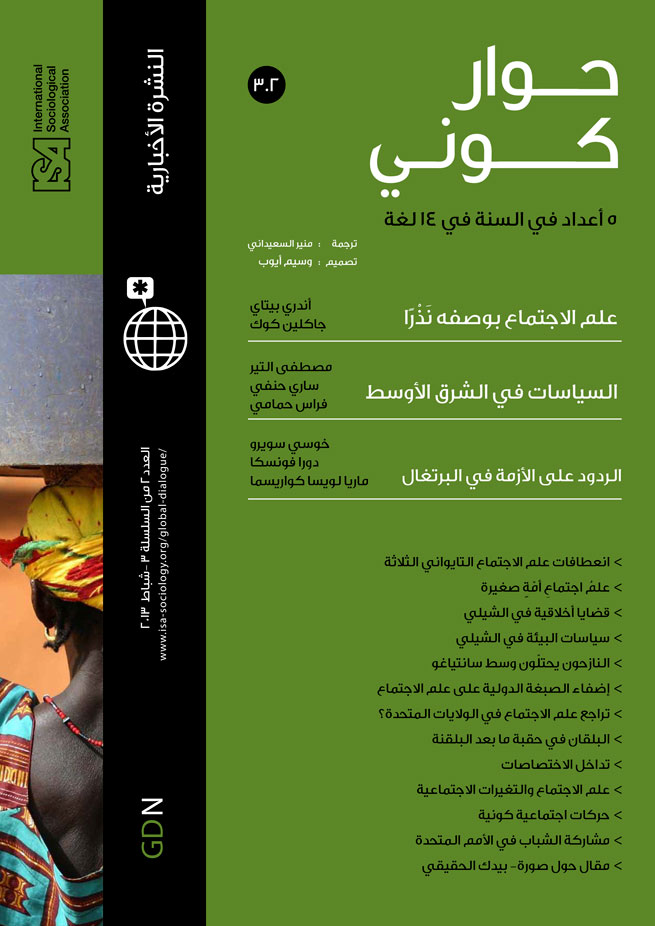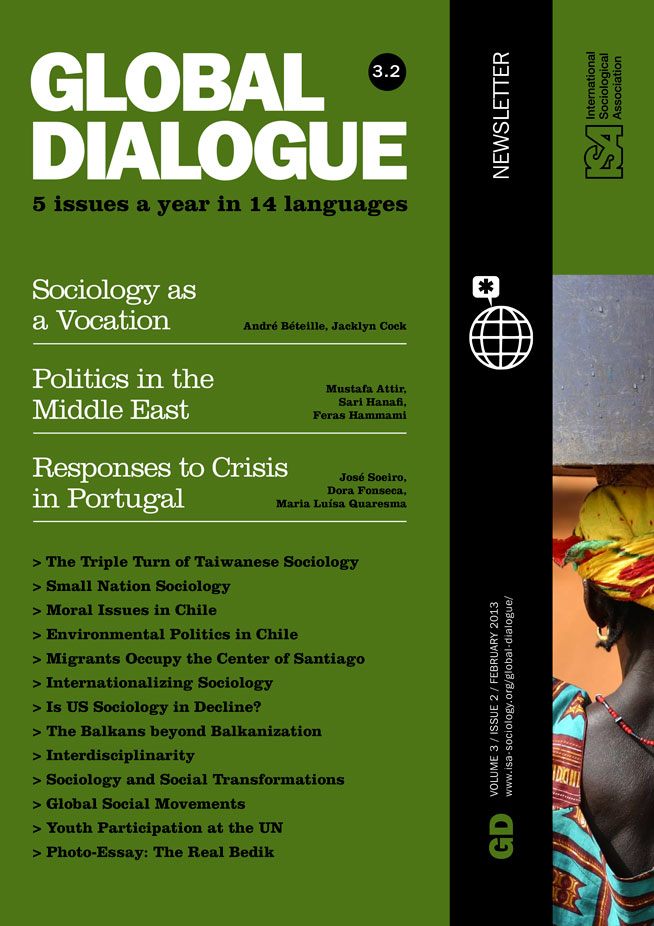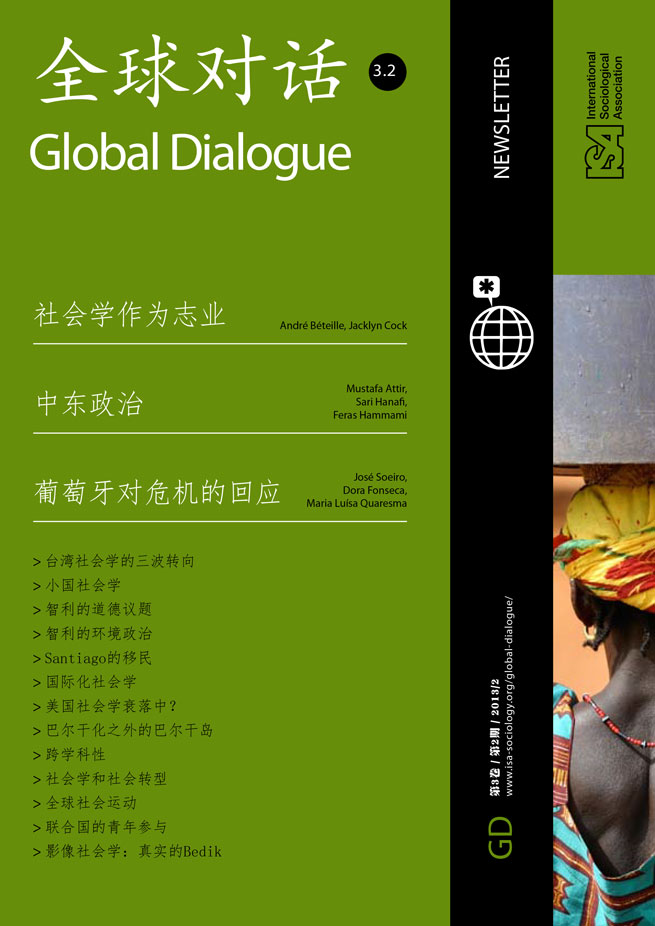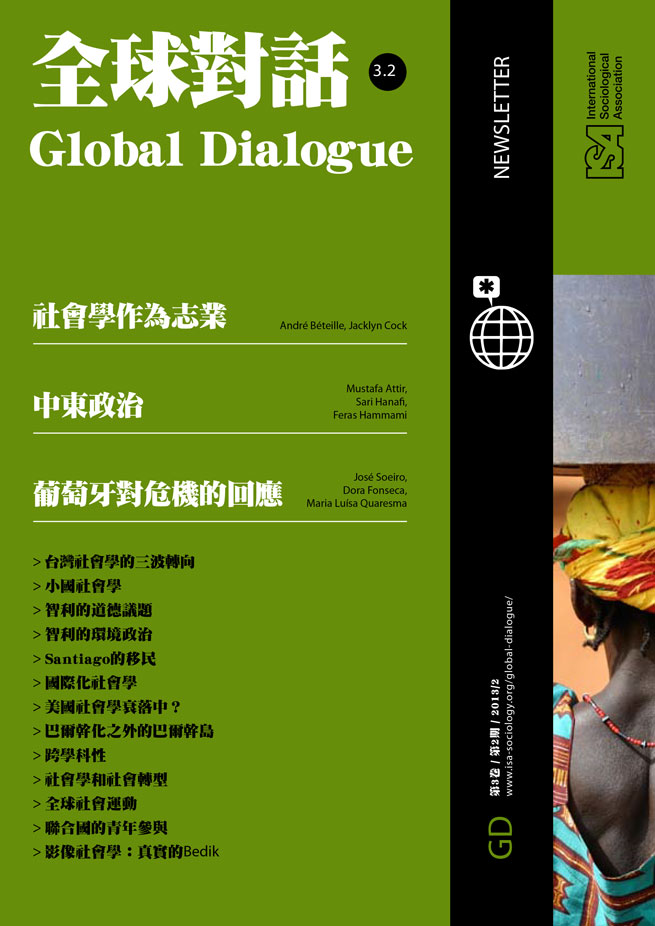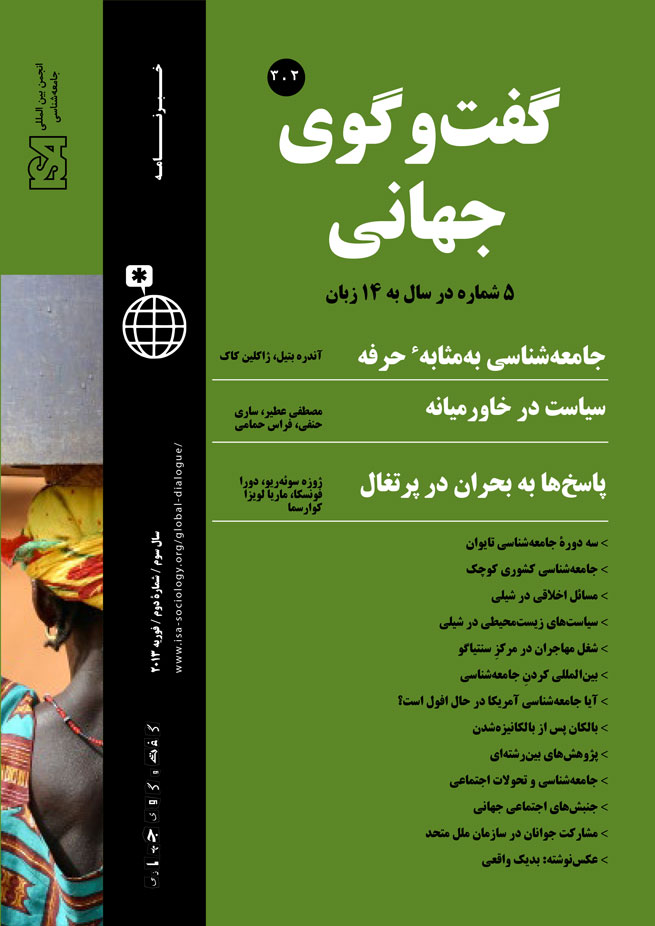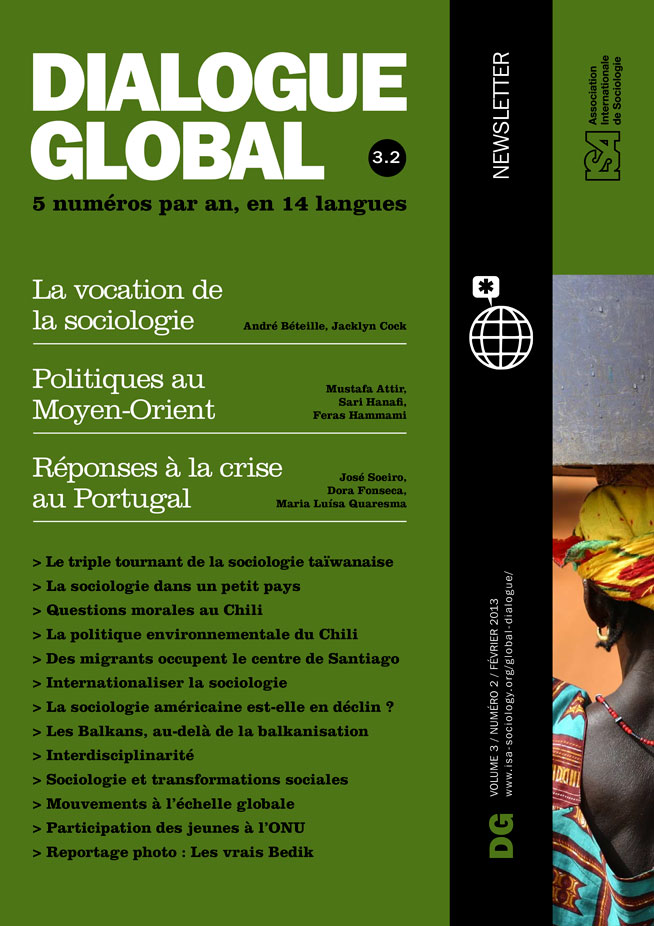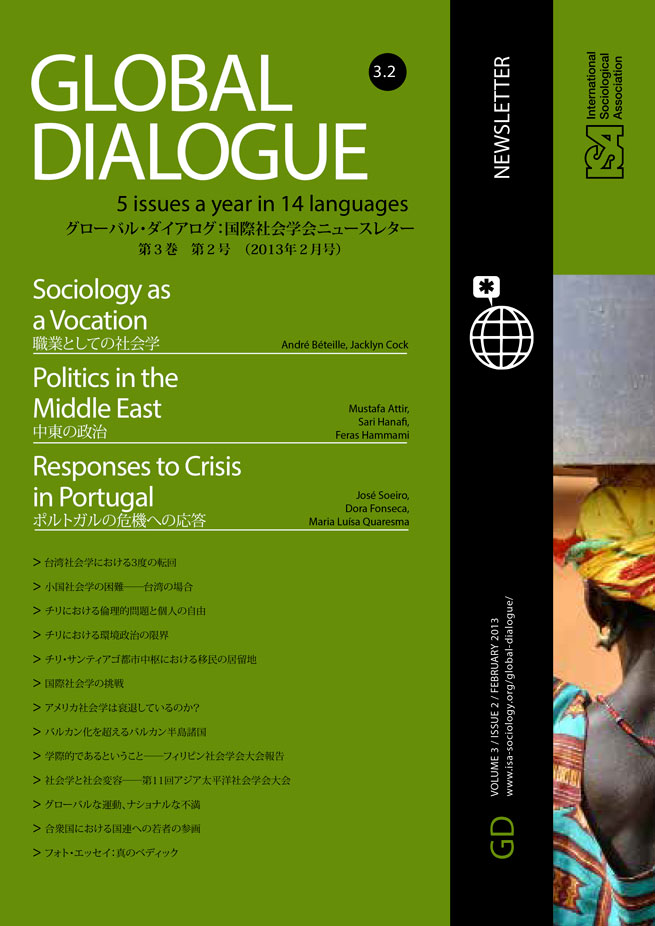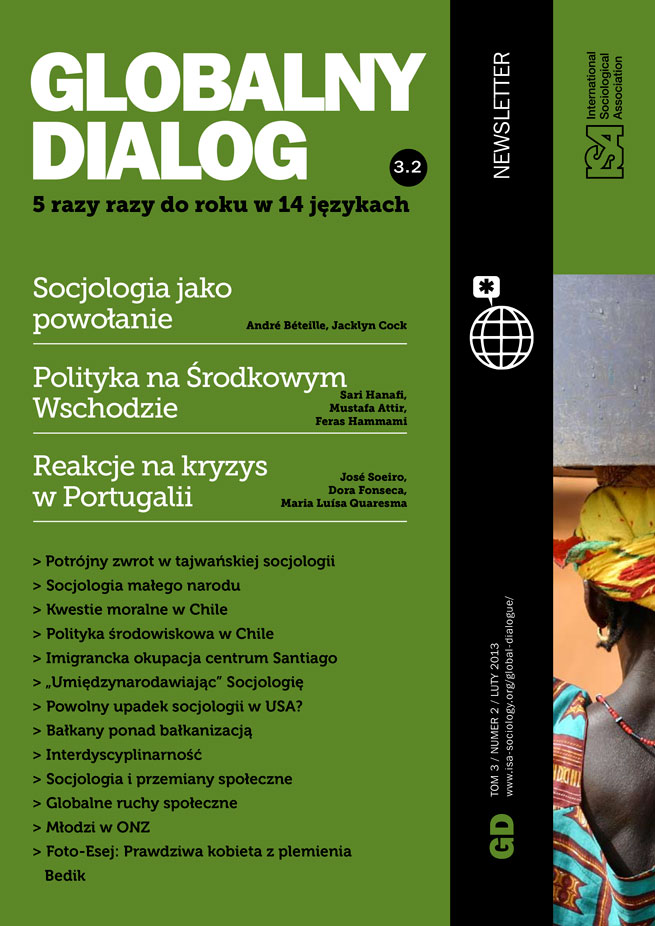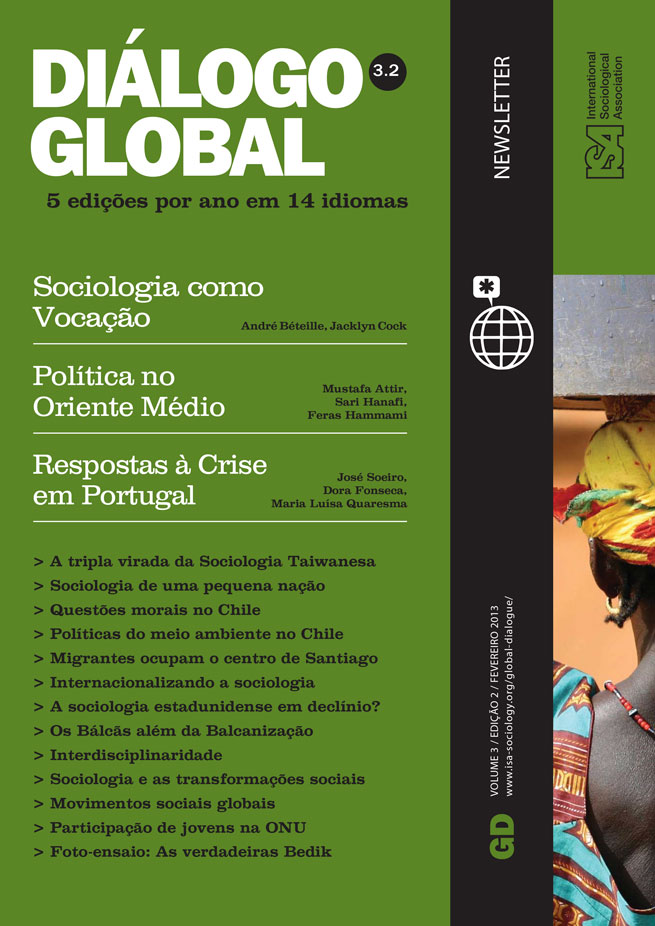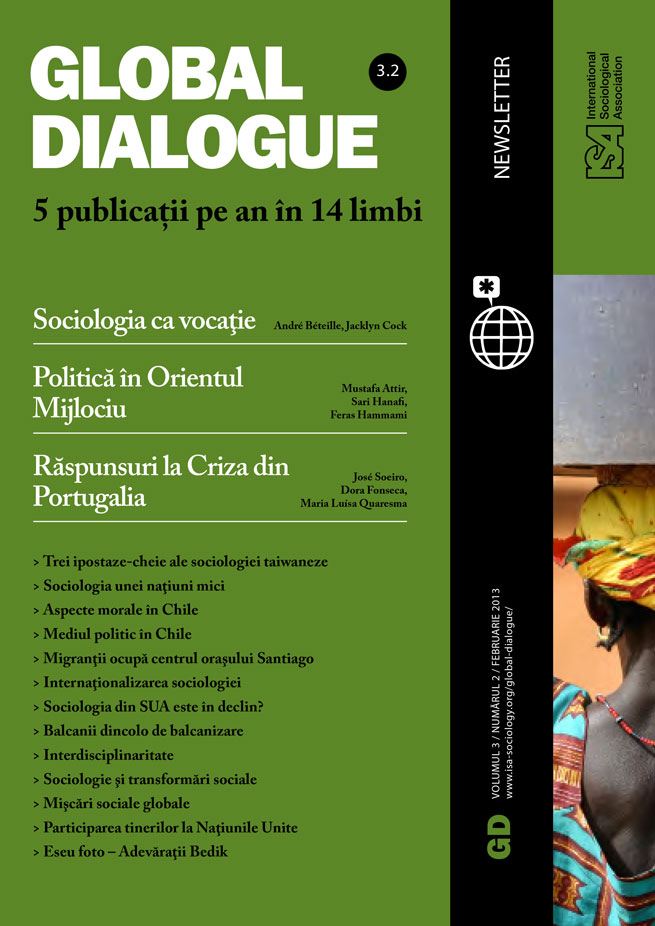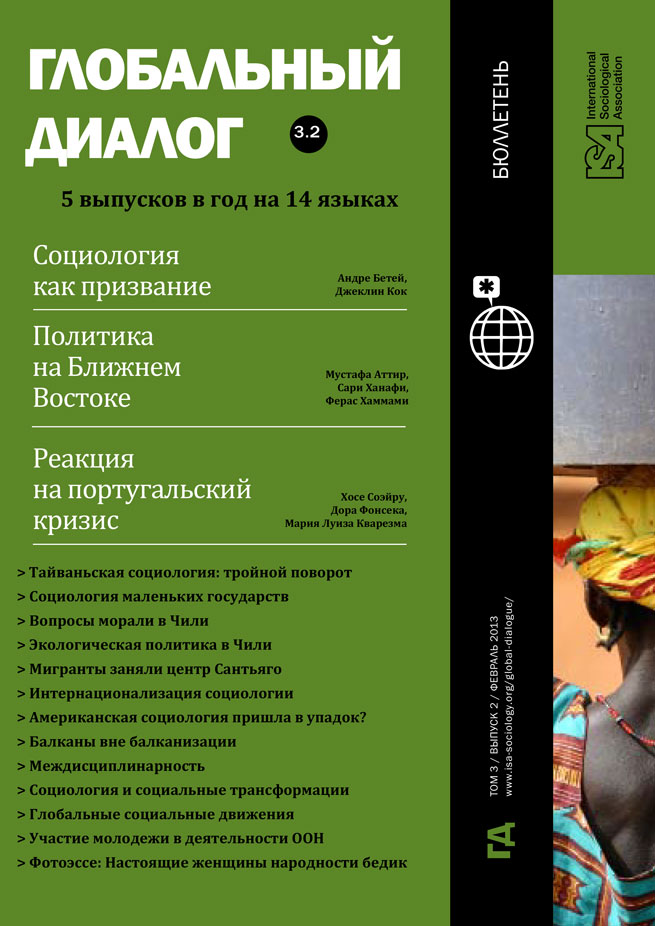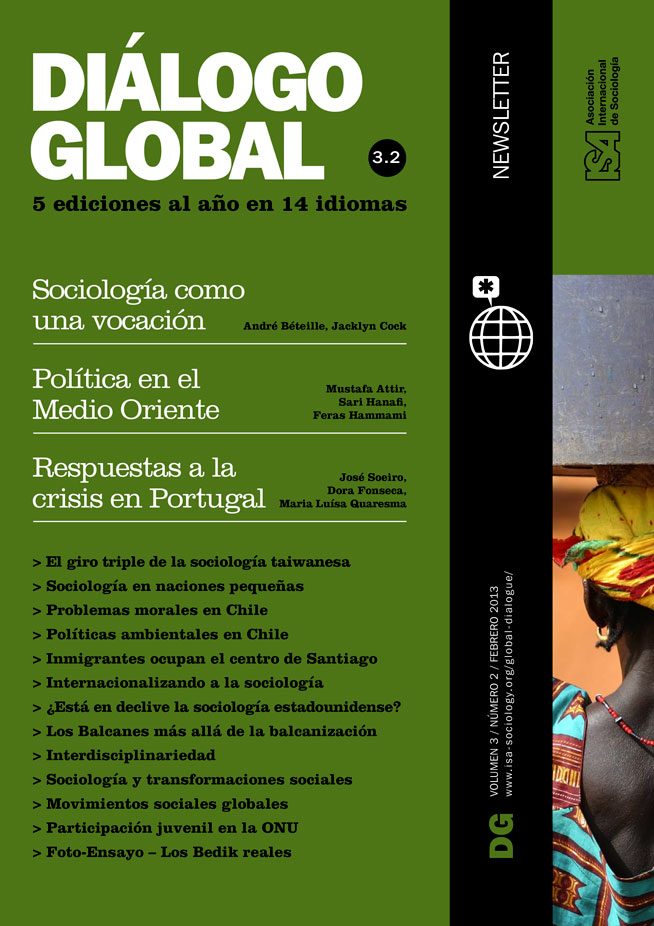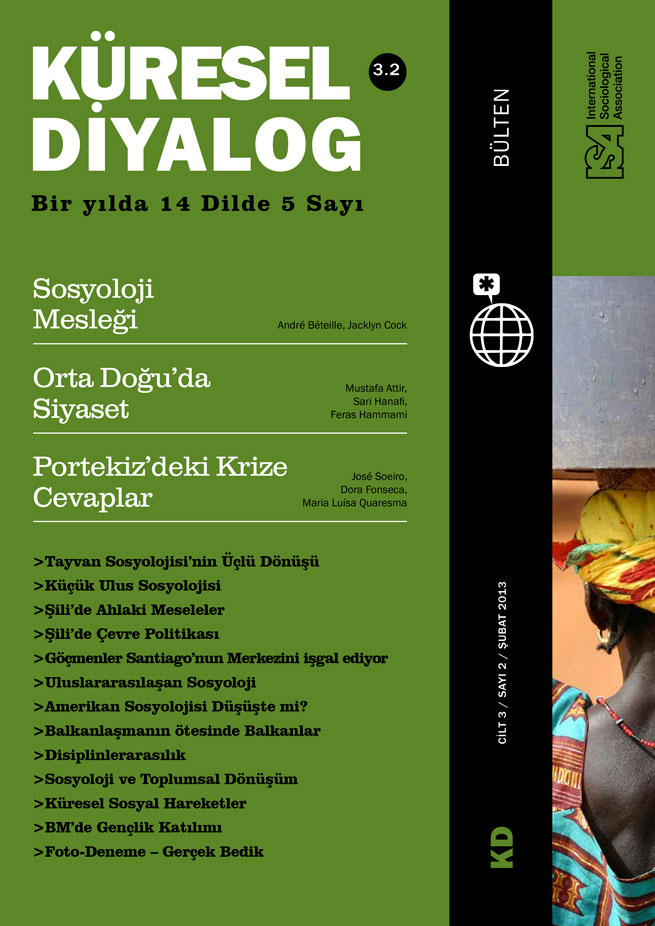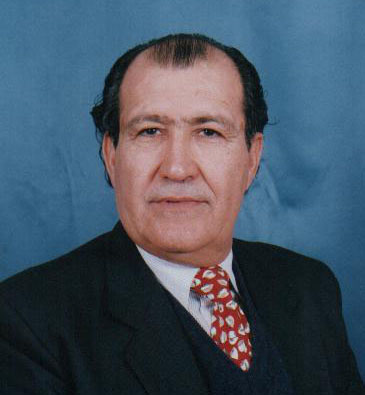Read more about Politics in the Middle East
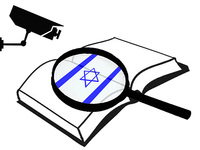
Political Crisis in Israeli Universities
by Feras Hammami
February 15, 2013
Dr. Mustafa O. Attir is Professor of Sociology at the University of Tripoli, Director of the Center for Sustainable Development Research, and former President of the Arab Sociological Association. He is the author of numerous books and articles on the impact of modernization and oil on the Libyan society. He is interviewed by Sari Hanafi, Professor of Sociology at the American University in Beirut, member of the ISA Executive Committee, 2010-2014.
SH: Can you tell me about your academic trajectory in Libya?
MA: I got my BA from the School of Liberal Arts, University of Libya, majoring in Sociology. In 1962, I was sent by my university to the US where I got an MA from the University of Pittsburgh and then a PhD in sociology from the University of Minnesota in 1971. I returned to Libya where I have been teaching ever since as well as holding a number of university posts, including Dean of the School of Liberal Arts, Director of the University Research Center, and University President.
SH: I attended a workshop organized by the Center for Arab Unity Studies. Some leftists and nationalists criticized the NATO intervention in Libya while Libyan participants were unanimously supporting it? What is your position?
MA: The Arab Spring began in Libya on February 17, 2011. It started as a peaceful demonstration in the Eastern city of Benghazi. The regime responded furiously using all kinds of military hardware. But the excessive use of violence against unarmed protests did not stop Benghazi’s demonstration which spread all over the country. Hardly any city or town was spared, and the movement looked like a people’s revolt. After some time, the regime succeeded in securing its control over certain parts of the country including the capital, while all the East and parts of the West and South remained in the hands of the rebels. Soon the country was plunged into what amounted to civil war even though the rebels’ military hardware was in no way a match for the fire power of Gadhafi’s security battalions, which utilized heavy equipment including armor, air and artillery assets, as well as foreign mercenaries. Modern media made it possible for the rest of the world to see the brutality and the damage Gadhafi’s security battalions inflicted upon civilians. Soon the United Nations Security Council passed a resolution authorizing member states to establish and enforce a no-fly zone over Libya, and to use “all necessary measures” to prevent attacks on civilians. This led to NATO intervention, which was limited to air and naval fire, but the fighting on ground was left to rebel armed militias. Finally, after 246 days, the war came to an end. Gadhafi was stubborn and ruthless, and had it not been for international military intervention, the country and its people would have been decimated.
SH: How can a sociologist like you produce knowledge about his society when it is under the rule of dictatorship? And what kind of knowledge could you produce?
MA: It was not an easy task to teach sociology in Libya, to be independent, and save the content of courses from being colored by ideology. Being educated in American schools I was deeply involved with empirical research and quantitative techniques. In sociology I was concerned mainly with modernization and social change. This area was relevant to Libyan society as well as the rest of the Arab World. Libya has a small population, divided into tribes which are closely connected to each other. Since money was not scarce and being the first sociologist with a PhD degree, I faced no difficulty in having access to top-rank officials, and securing adequate funds for any topic I wanted to study. In order to avoid getting into trouble I kept away from two areas: religion and politics. However, I managed to do research among prisoners and on at least two occasions the sample was drawn from those who were in prison due to their affiliation with the Muslim Brotherhood and what came to be known as the Arab Afghan. Although funds came from government departments it was not necessary to put research findings into practice, since the relationship between research and decision-making was very weak.
SH: Have universities in Libya purged the intellectuals who were close to Gadhafi’s authoritarian ruling class?
MA: University professors in Libya could be classified into two major categories: the first group was composed of those who got their university education prior to Gadhafi’s military coup in 1969 and were given scholarships abroad because they were distinguished students. Almost all of them attended Western universities (American, British, German, and French). Members of this group are dedicated to their profession and did their best to serve their specialties and students. The second group became students when Gadhafi began talking about his private ideology, later consecrated in his Green Book. During those days Libya had no political parties but some university students did affiliate themselves with different political trends in the region. Gadhafi, however, decided that everyone, especially university students, should follow his new ideology and many did. In 1976 he ordered those students who believed in his ideology to cleanse university campuses of students whom he categorized as reactionaries. Clashes began right away and many were injured or arrested while others were forced to leave the university. In the following year he began organizing his followers into revolutionary committees. Members had to memorize Gadhafi’s sayings, follow his steps, and perform any task he ordered them to do, including hanging students publically on university campuses.
According to university regulations only students with distinction should be sent abroad to graduate school. But since the late 1970s students who became leaders of revolutionary committees were rewarded with study abroad. The majority were not academically oriented and, therefore, not qualified to enter good schools and ended with diplomas from third- or fourth-rate universities in East European or Arab countries. When they returned they took up teaching positions to spread Gadhafi’s ideology among students and the public in general. Therefore, when Libyan universities were reopened after the war, some of these teachers left of their own accord, others were told to leave, but some managed to hang on to their teaching posts because of their social ties with high-ranking individuals in the new regime. Family and tribal relations can often preempt laws and regulations. This has always been the case, still is, and will continue for long time to come.
SH: Have intellectuals played a role in the Libyan revolution?
MA: What took place in Libya, as well as other Arab countries, was an uprising which may develop into a revolution or may not. Intellectuals were taken by surprise. At the beginning it was a movement by young people using modern information technology. However, the date of February, 17 was scheduled before the Tunisian uprising. It is related to a massacre which took place in Benghazi on the same day in 2006. Prior to 2011 individuals did demonstrate but their numbers were not large and were dispersed easily by security forces. In planning the protest of 2011 young individuals exchanged and discussed ideas and strategies via Facebook. The regime was well aware of these activities and was prepared for any revolt. What happened in Tunisia and then in Egypt encouraged more people to participate in the Libyan uprising. Even though the beginning was in Benghazi individuals in Tripoli and other cities were also preparing themselves to take part. The excessive brutality with which the regime dealt with a peaceful march triggered a chain of reactions all over the country. As the uprising continued, older people from all strata of society including intellectuals joined in. As the regime had survived so many failed military coup attempts as well as all kinds of international pressure many Libyan intellectuals began to accept the idea: that the only political development possible must come from within the regime itself.
SH: As a sociologist, how do you see the future of Libya?
MA: The slogans that spread during the uprising centered on getting rid of Gadhafi, changing the regime, and establishing a democratic political system. You mustn’t forget that all but 12% of the present Libyan population were born and raised during Gadhafi’s reign. This means that almost all active Libyans were taught that their political system was the best in the world, and their democracy which had no political parties, no elections, and no representatives, was the only true democracy. All media facilities were state-owned and directed toward propagating Gadhafi’s ideas. The goal was to make all Libyans stand firm behind one stream of thought. Libyan rebels succeeded in changing the system and getting rid of Gadhafi, but I do not think they are qualified to establish democracy. The interim government with hundreds of newspapers, tens of television stations, and countless political parties, held a fair election, but the rebels did not lay down their arms. Therefore there are more than one thousand armed groups, each operating independently. They get involved in any action their leaders decide: from policing their district and operating checking points to making an arrest, and even interrogating, and sending people to private prisons. In addition, the country has a number of extreme religious groups who insist on imposing their private interpretation of religion on others. As long as these types of groups operate outside the law, establishing a democracy will be wishful thinking.
SH: What is the mission of sociology in the post-revolutionary Libya?
MA: Today it has become possible to conduct research on topics that had become taboo under Gadhafi. There are piles of empirical data that could be reanalyzed to develop new theoretical models, involving variables related to the nature of the political system which lasted 42 years. At the same time, the Arab Spring introduced new areas and directions for research, addressing forces that will shape the future of Libyan society: sophisticated media facilities, new political players, international powers, Islamist groups, and expatriates. Sociology’s task is to describe how all these different and conflicting components are going to fashion the Libyan scene. I have no doubt that Libyan sociologists are going to have their hands full for some time to come.
Sari Hanafi, American University in Beirut, Lebanon, and member of the ISA Executive Committee, 2010-2014
Mustafa O. Attir, University of Tripoli, Lybia
This issue is not available yet in this language.
Request to be notified when the issue is available in your language.
If you prefer, you can access previous issues available in your language:
